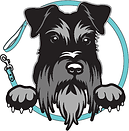Is Your Dog Bossy?
- anewleashonlifedog
- Mar 2, 2023
- 3 min read
Updated: Jul 17, 2023

There is a large contingent of dogs out there who live the good life, flying under the radar with their behaviours, and never annoying the family to the point where the family chooses some form of dog training to try and sort things out. They are just pretty good. But a lot of these dogs are still bossy toward their humans, they have just taught the human to not notice, or not care. Their behaviours are a perfect foundation for something more serious to come along and take root if a negative experience happens or if they are genetically predisposed. So, Is your dog Bossy?
Here's a quick check you can do to find out:

If their dinner, treat or walk doesn't arrive on time, they vocalise about it, scratch your leg, pace around the bowl, or start jumping up. You know that you are being told - in uncertain terms - to up your game!
They push for pats, insert themselves under your hand or nudge you for affection. Sometimes you are not allowed to stop patting them. If other pets want to have affection too, often they are not allowed to join in - mister bossy boots will chase them off, growl or get cranky. You know that your affection is only for mister bossy boots and he dictates to you where you are allowed to give it.
They use their sad eyes, low moans, or long sighs to make you feel bad, to get what they want. They understand all too well how to tug at your heartstrings and manipulate you into doing their version of the right thing.
If they normally are allowed on the sofa, bed or in a certain room, without limits, and you suddenly limit or change that - perhaps a visitor has arrived, or a room is being renovated – they sulk or protest. They are not used to their humans posting limitations in their environment. And you know for sure they see it as "their environment". Sometimes you even joke that you are lucky they allow you to live there.
They protest about the arrival of someone who doesn't "belong" or they protest about the absence of someone who has gone out. Perhaps they refuse to eat when someone is away or they are only satisfied when the proper (in their opinion) pack members are present. Perhaps guests who are not acceptable to mister bossy boots get growled at for no other reason than they had the audacity to enter, move or speak.

What other bossy behaviours do you see or experience? Try changing things up from their normal routine to find out what they think. Maybe none of this is an issue to you - awesome - but if you do want to fix something bigger you may want to sort out a more solid foundation for your relationship. And consider this: most dogs out there who DO have a more serious behavioural problem didn't start with that major issue - they started as cheeky puppies, pushy adolescents, or dogs who were just plain bossy. Now there is every chance that your young or bossy dog will never go there - to something serious, worrying or dangerous - but what if they do?
What if some experience or change in the home environment tips them over an edge you didn't expect?
What if they build so gradually up to the tipping point that you never even noticed it happening, but once the tipping point is reached, you realise that the whole thing was completely inevitable? Let's prepare now for that potential and ward it off.
Try changing things up from their normal routine to find out what they think.

Change their meal times or let them go without an expected treat.
Walk them at a different time or place to what they expect - or don't go at all sometimes, train them instead.
Change where they are allowed to go in the house or add a new rule.
Change who pats them feeds them or walks them.
Stop patting them if they push in or push another pet out.
I bet you can think of a heap of other changes you can try to test.
Give them all a shot.
If they go with the flow, fantastic. If they are a bit put out, ok you can deal with any minor attitude they want to throw at you.
But if they throw you some major attitude or behaviours, we can seriously start dealing with those. Click on the link to download my Bossy Dog Checklist.




